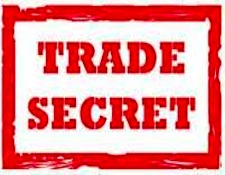It’s the time of year for saving money!
 Centuries ago, the Guild System served a triple purpose in the transmission, generation, and practice of knowledge: Originated back in days when literacy was so scarce that just the ability to prove that you could read was enough (by “benefit of clergy”) to get you off for committing some crimes, guilds were, first, a way to pass practical knowledge along from generation to generation by telling about it, demonstrating it, and, under the direction of a “master”, actually practicing it, as an apprentice, then a journeyman, and finally as a master in one’s own right, instead of by the book-learning we’re more accustomed to today.
Centuries ago, the Guild System served a triple purpose in the transmission, generation, and practice of knowledge: Originated back in days when literacy was so scarce that just the ability to prove that you could read was enough (by “benefit of clergy”) to get you off for committing some crimes, guilds were, first, a way to pass practical knowledge along from generation to generation by telling about it, demonstrating it, and, under the direction of a “master”, actually practicing it, as an apprentice, then a journeyman, and finally as a master in one’s own right, instead of by the book-learning we’re more accustomed to today.
Guilds were also centers for the creation of knowledge, in that the Masters of whatever craft or trade would add to the knowledge of their guild and – just exactly as adding to one’s field of knowledge is required today for the award of a “doctor’s” degree (“doctor” being derived from a Latin word meaning “to teach”) – a journeyman of whatever guild might be required to add (as his “master-piece”) something to the knowledge of his guild in order to be recognized as a Master, himself.
Guilds also, operating under “letters of patent” granted by a monarch or some other authority, controlled the flow and limited the practice and knowledge of their craft or trade to their members and held, as exclusive to themselves and their members, the tools of their trade and its necessary supplies and materials.
 Does any of that sound familiar to you? Sort of like our modern system of patents, trademarks and copyrights? Of course it does, it’s where all those things came from.
Does any of that sound familiar to you? Sort of like our modern system of patents, trademarks and copyrights? Of course it does, it’s where all those things came from.
There are differences, though: Initially, just as a Journeyman’s “masterpiece” had to actually work and have demonstrable value in order to be accepted, the United States Patent Office (and similar offices in other countries) required that a working model be submitted with each patent application, and unless that model performed to the satisfaction of the assigned Patent Examiner, no patent would be issued.
All of that changed in the United States more than a century ago when, in 1880, the United States Patent and Trademark Office (USPTO) dropped the requirement for a working model. Nowadays, all that’s necessary for the issuance of a US patent is that the invention to be patented is new, useful, and non-obvious. That it actually works is no longer a requirement, although one would certainly imagine that having the examiner BELIEVE that it might work (or at least NOT believe that it CAN’T) could be of some help.
So what does this all mean to us as audiophiles? Or even as consumers, in general? Easy; it means that, once again, we’re on our own when it comes to determining whether an offered, product, process, or “tweak” is worth buying or is of any real value at all.
Simply the fact that something claims to be – and IS – patented is no guarantee whatsoever that it works as claimed. We know that because WE KNOW THAT THE PATENT OFFICE NEVER TRIED OR TESTED IT BEFORE ISSUING ITS PATENT.
]]> Similarly, just because something ISN’T patented is no guarantee that it DOESN’T work. A modern patent confers upon its holder a right to sue if it’s violated or infringed, but it DOESN’T guarantee the patent holder any right to win. That’s entirely up to the courts, the skills of the contending attorneys, and the resources available to the parties to the litigation. A righteous patent holder with little money might very well lose to a richer violator.
Similarly, just because something ISN’T patented is no guarantee that it DOESN’T work. A modern patent confers upon its holder a right to sue if it’s violated or infringed, but it DOESN’T guarantee the patent holder any right to win. That’s entirely up to the courts, the skills of the contending attorneys, and the resources available to the parties to the litigation. A righteous patent holder with little money might very well lose to a richer violator.
As a result, just as the guilds of yore kept their knowledge secret from all but their members, many inventors or companies today, knowing that defending their patents can be costly and that, even after exhausting their resources, they might still lose a defensive lawsuit, never patent anything — even the most significant scientific or technological breakthroughs – and prefer, instead to maintain their knowledge as “trade secrets”. Another reason for going the ‘trade secret’ route instead of applying for a patent is that patent applications – whether or not a patent is actually issued – may eventually become available to the public and can be a fine way to inadvertently educate your competition or to provide a springboard for competitive research.
When I had XLO, we never sought patents for anything, but always kept the proprietary knowledge that we wanted to KEEP proprietary as trade secrets. Part of that was because if the competition doesn’t know what you know it’s harder for them to catch up with you, and part was because even if we HAD patented something and a major company (like SONY, for example, or Harman Industries) had wanted to infringe our patents, they would have had SO much money available to fight us with that we would have had no chance at all of winning against them, and would have been better off just to send them a nice letter commending them on their good taste in choosing our products to copy and thanking them for the implied compliment.
 During the era of the guilds, knowledge WAS tightly controlled, and, in an effort to preserve a competitive advantage, a guild Master might very well have kept some of his special knowledge to himself, away from all others — even other Masters of the same guild and his own apprentices and journeymen. As a result, such concealed knowledge might NEVER have become public, and never become a part of the general pool. The secret of “Damascus steel”, which was lost for centuries and only recently rediscovered, may be a good example of such a thing, and, as a result, even modern university-trained PhD metallurgists might have no knowledge of how it was made. Some of those might even doubt that it ever existed or COULD exist, and might lurk around the Facebook sites of metallurgy-buff groups as trolls, denying it and using their university credentials as support. Is it possible that such a thing could also be happening in our own field, and that some of the tweaks and mystery products with which our industry and our hobby abounds actually DO work? And that trade secrets might mask real knowledge that even the EEs don’t possess?
During the era of the guilds, knowledge WAS tightly controlled, and, in an effort to preserve a competitive advantage, a guild Master might very well have kept some of his special knowledge to himself, away from all others — even other Masters of the same guild and his own apprentices and journeymen. As a result, such concealed knowledge might NEVER have become public, and never become a part of the general pool. The secret of “Damascus steel”, which was lost for centuries and only recently rediscovered, may be a good example of such a thing, and, as a result, even modern university-trained PhD metallurgists might have no knowledge of how it was made. Some of those might even doubt that it ever existed or COULD exist, and might lurk around the Facebook sites of metallurgy-buff groups as trolls, denying it and using their university credentials as support. Is it possible that such a thing could also be happening in our own field, and that some of the tweaks and mystery products with which our industry and our hobby abounds actually DO work? And that trade secrets might mask real knowledge that even the EEs don’t possess?
You’re going to have to decide that for yourself; and whether or not a product has a patent – or even a whole string of patents might make no difference at all. After you’ve read all the reviews and done all the research and had all the discussions with friends and so-called “experts”, you’ll just have to listen and make up your own mind.
Good! That’s what this hobby is all about. Ain’t it fun?





